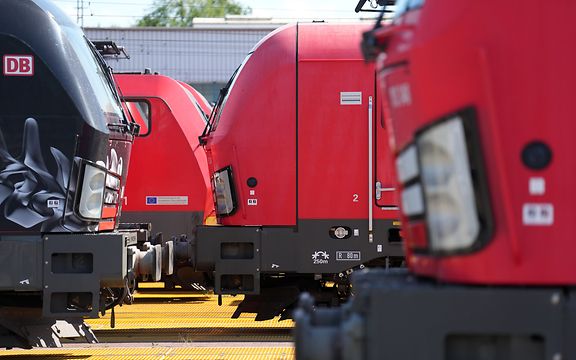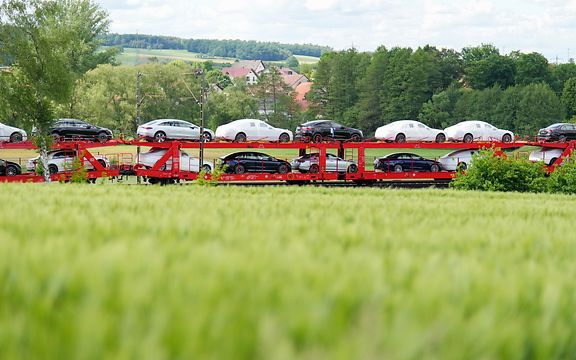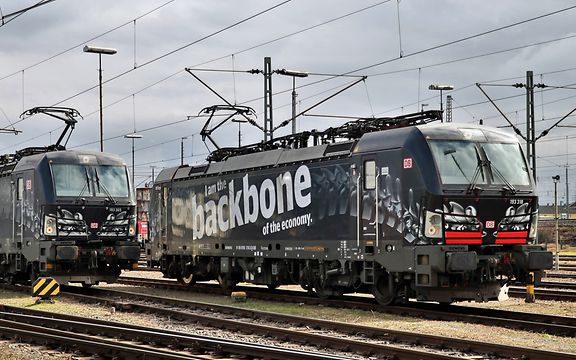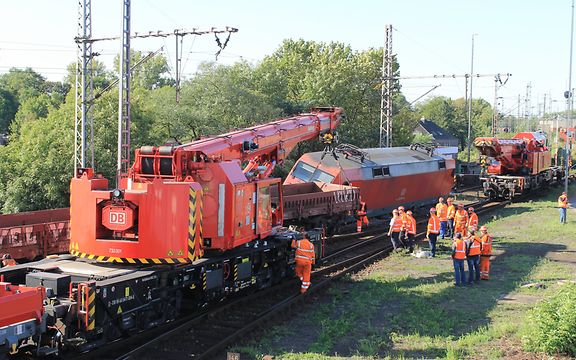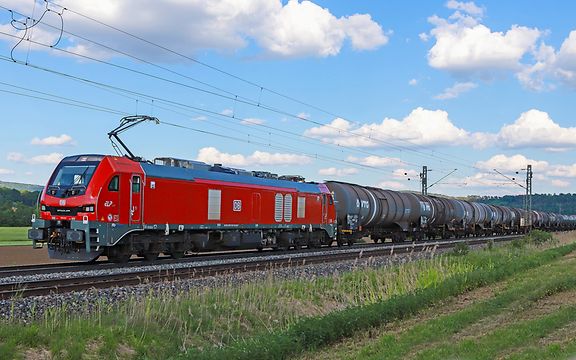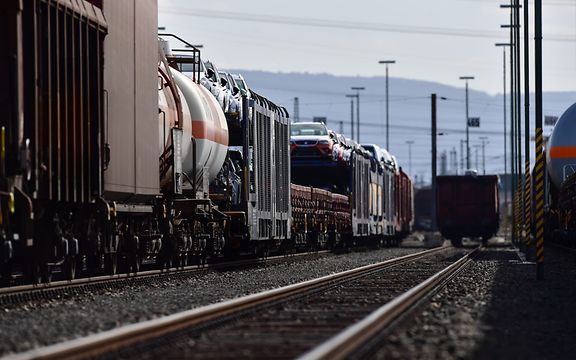Making steel recycling even more sustainable
Investing in the future: Derichebourg reconnects its railway siding
Steel is a true marvel when it comes to reusability, as it can be fully recycled over and over again. Scrap management company Derichebourg Umwelt GmbH has based its business on precisely this characteristic. To make steel recycling even more sustainable, Derichebourg has decided to make greater use of rail transport once again and has reopened the rail siding at its Karlsruhe plant. DB Cargo has handled its rail transportation needs since August 2021.
A new combination of transport options
Steel and its by-products are 100% recyclable, thereby cutting emissions of greenhouse gases such as CO2 and substantially reducing the need to mine iron ore. Against this backdrop, it clearly makes sense to focus on sustainability in in the transport chain, too. Until now, the recycling specialist has largely used ships and lorries to transport scrap from Karlsruhe to steelworks throughout Germany, but Derichebourg now intends to gradually shift more and more of its transports to sustainable rail.
Fans of flexibility
There is another important calculation, according to Markus J. Reisch, manager of Derichebourg Umwelt GmbH's operations in Karlsruhe. "For us, flexibility is of paramount importance, but unfortunately that isn't always on offer on the waterways," he says. "Our premises are at Karlsruhe's port on the Rhine, but we've experienced difficulties due to the river's fluctuating water levels in recent years. Too much or too little flow means we can be unable to supply customers for weeks at a time. And, on top of that, a lot of steelworks cannot be supplied by ship. That's why we are trying to use other modes of transport to get as much material as possible to our customers. Since August, rail has once again been part of our logistics system."
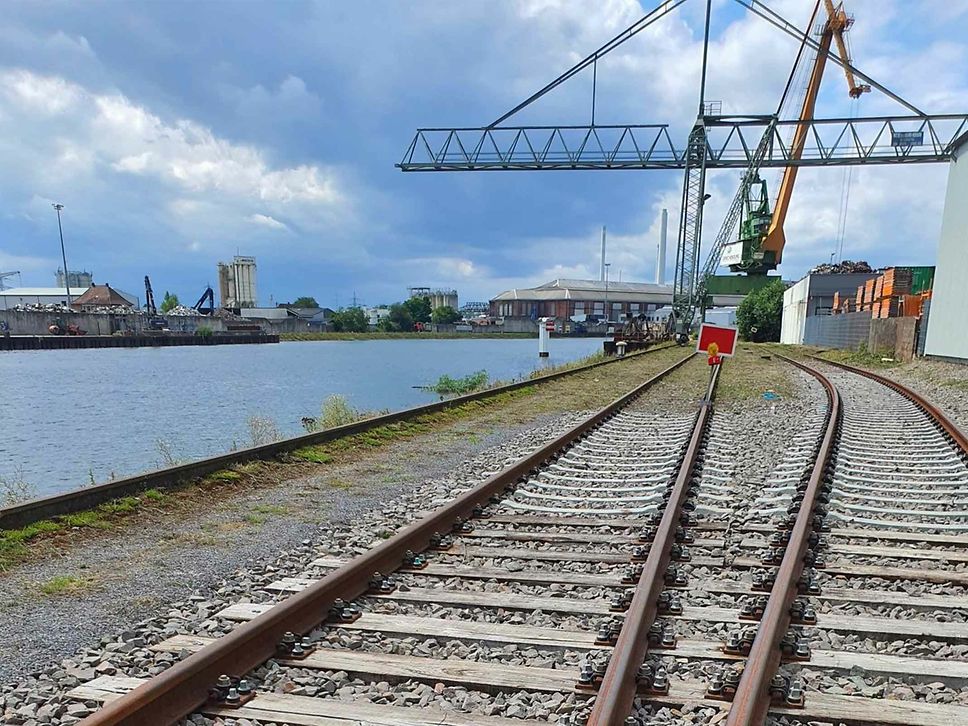
Starting with 500 tonnes of steel a month
As part of its new strategy, the company has reactivated an existing 194-metre siding. "The siding lay idle for several years because it needed repairing, so we had no way of loading our scrap onto freight trains," Reisch explains. "Now, we've carried out the necessary repairs and are delighted to have a functioning siding again." Since the siding reopened, ten wagons have left Karlsruhe every month to take material to the steelworks. Each wagon has a load of 50 tonnes. According to Reisch, his company believes that rail transport has further potential: "We are in talks with DB Cargo to get even more empty wagons."
Longstanding cooperation between DB Cargo and Derichebourg
This new business venture between DB Cargo and Derichebourg's Karlsruhe site is based on a pre-existing foundation. For several years, the logistics provider and metals firm have been working together to move material from production sites in Nuremberg and Reuth (in Saxony). Maximilian Weiss works in customer support at DB Cargo's regional sales team in Nuremberg. "Reopening the siding in Karlsruhe means that all three of Derichebourg's production sites in Germany are now directly connected to the rail network," he says. "The company's clear commitment to rail is fantastic. It goes without saying that we will continue to actively support this customer so we can work together on shifting even larger volumes of scrap metal to environmentally friendly rail services." DB Cargo currently transports some 146,000 tonnes of scrap every year to customers throughout Germany and Europe for Derichebourg. This figure represents over half of the recycling specialist's total freight volume, and it is bound to grow following the reopening of the siding in Karlsruhe.
About Derichebourg Umwelt GmbH
Headquartered in Düsseldorf, Derichebourg Group is one of the world's leading recycling specialists. It has a long history in processing metal, one of the most important resources there is. By returning secondary raw material to the processing cycle, it is possible to use available resources in a more efficient way and so make a major contribution to protecting the environment. The family-run recycling specialist employs more than 10,800 people at 160 branches worldwide. In Germany, it currently has some 140 employees at seven locations, including Karlsruhe, Rothenburg ob der Tauber, Neumarkt, Nuremberg, Zwickau and Reuth.
